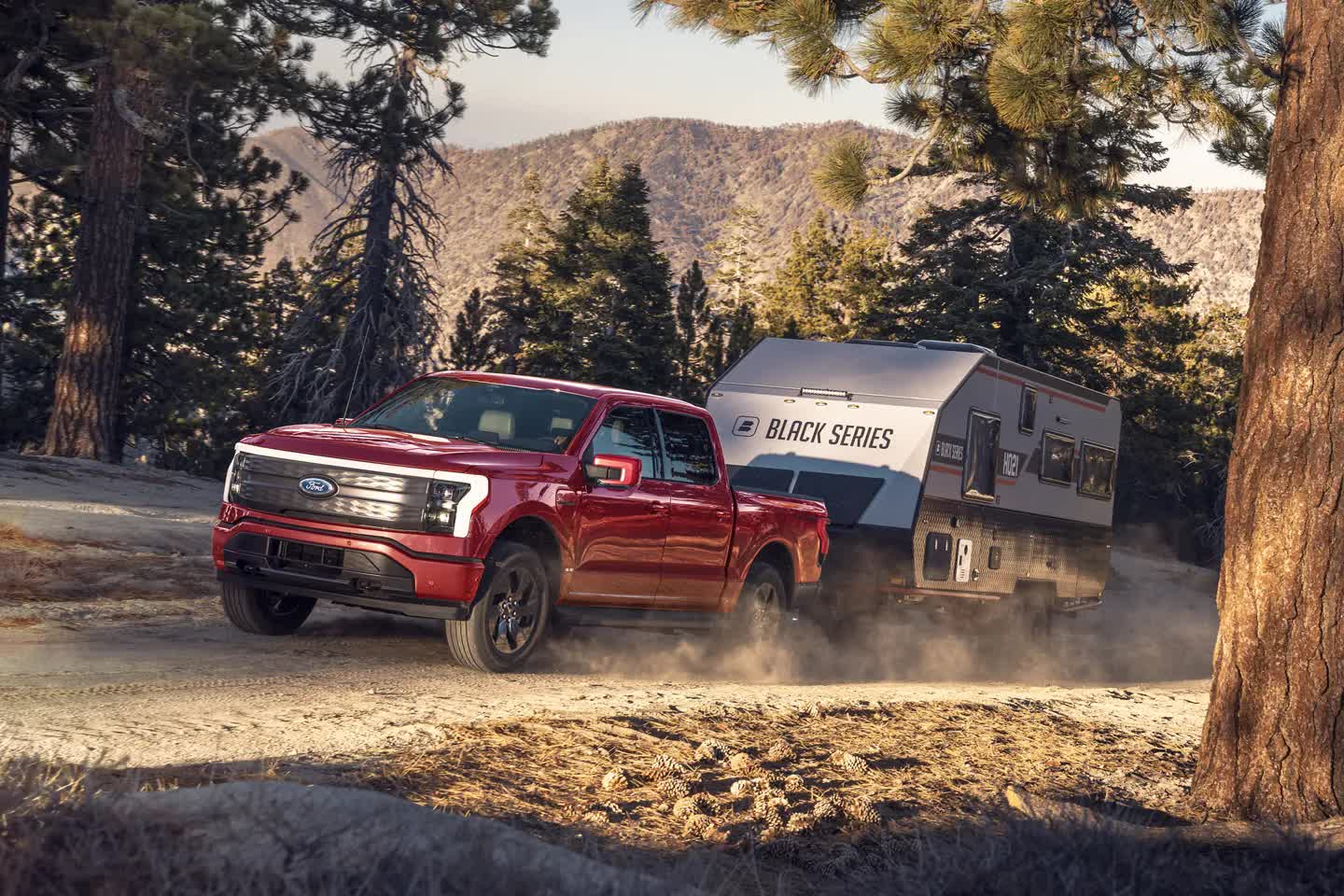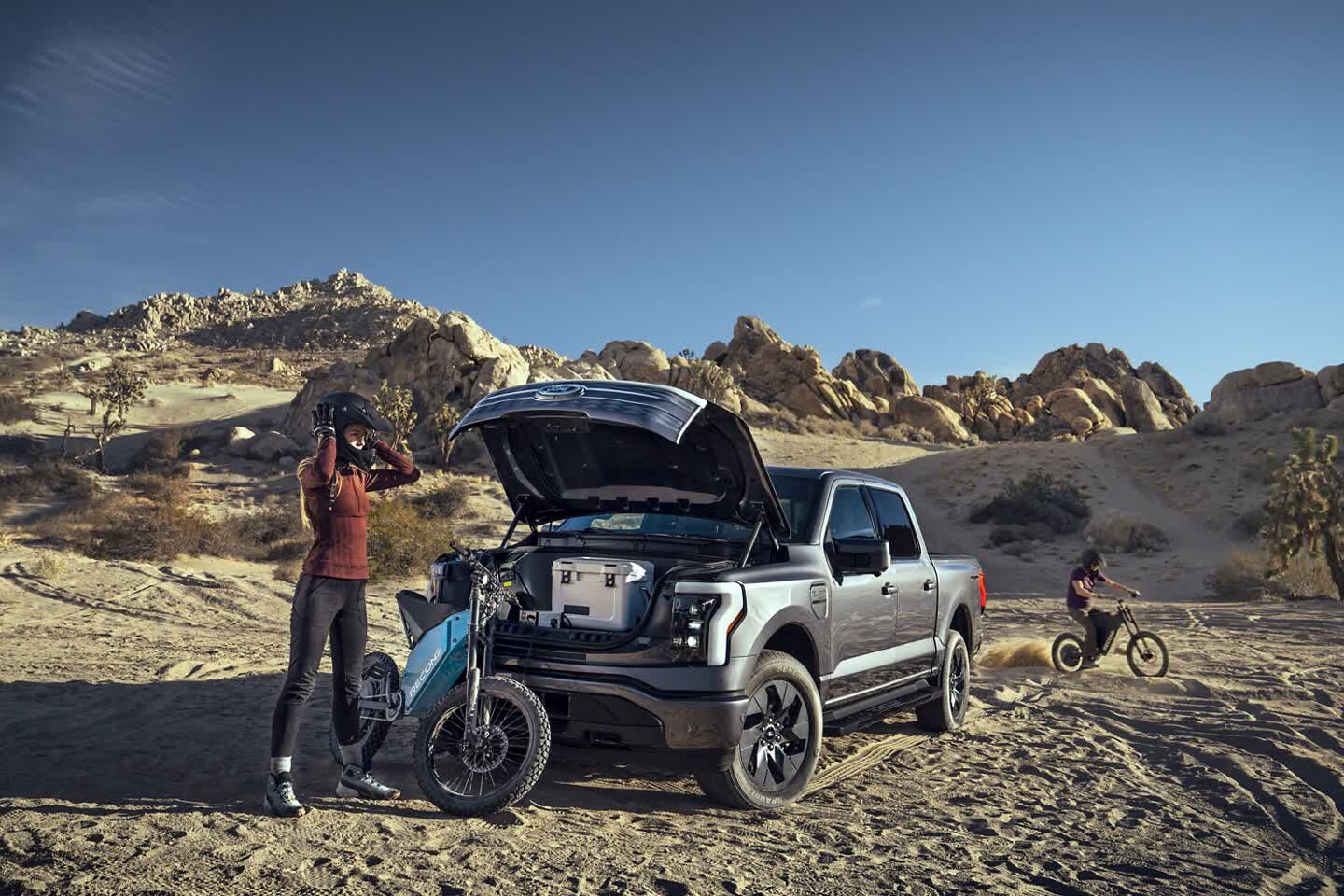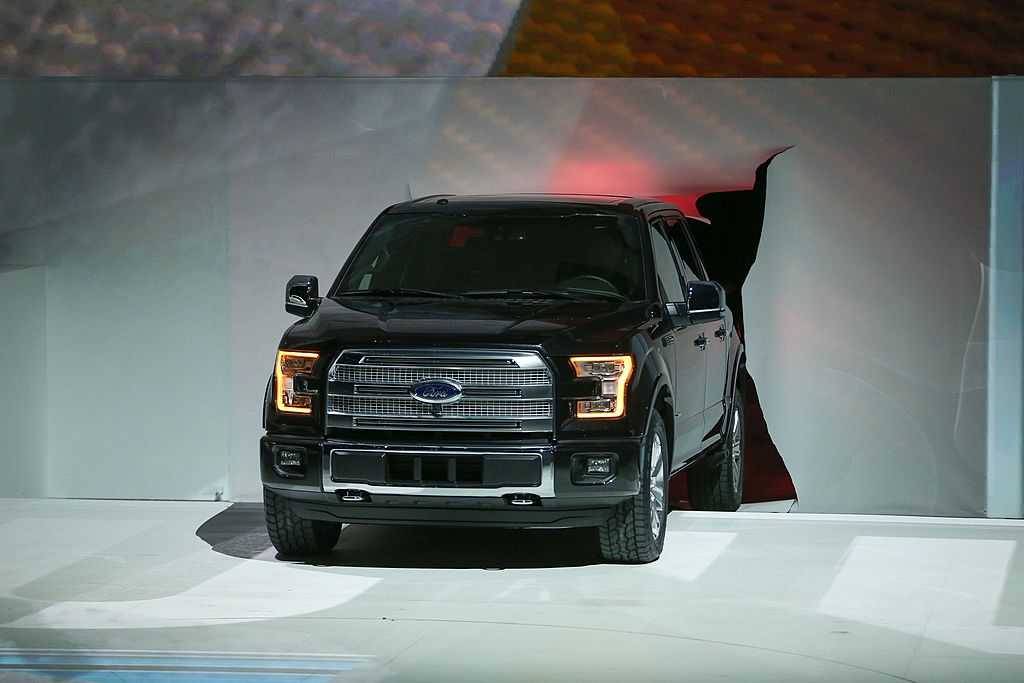In brief: Ford is slashing production of its all-electric F-150 Lightning pickup truck by 50% next year despite increasing plant capacity for the EV in 2023. The cuts, likely due to high prices and increased competition from models such as the Tesla Cybertruck, result from "changing market demand." With around 75,000 F-150 Lightning vehicles set for production in 2024, we could see more Cybertrucks produced throughout next year.

According to a memo seen by Automotive News, Ford's suppliers have been told by the auto manufacturer that from January, it is slashing the production rate of the F-150 Lightning from 3,200 trucks a week down to 1,600 trucks a week, reducing output by half.
The news is a surprise given that Ford received 200,000 reservations for the EV ahead of its release in 2022. The company even announced it was doubling its original production output to 150,000 and spent six weeks increasing capacity of the F-150 Lightning at its Michigan plant.
But demand for EVs isn't growing as quickly as expected. CNBC reports that although sales of the F-150 Lightning have steadily increased in 2023, reaching a monthly record of roughly 4,400 sold in November, Ford has only sold 20,365 of the trucks this year. The company also paused a $12 billion investment in EV manufacturing after warning that electric vehicles are too expensive.
We've recently seen car dealers ask the Biden administration to slow down its push to get more EVs on the road as the vehicles haven't been selling very well. Cost of living and reliability concerns have also played a part in the faltering demand.
The Tesla Cybertruck still looks set to become a big rival to the F-150 Lightning, despite all the complaints aimed at the former. Elon Musk said Tesla is targeting production numbers of 250,000 Cybertrucks per year, though that won't become a reality until after 2024. With Ford halving production of the F-150 Lightning, it could lag behind the Cybertruck in terms of production rates next year.
https://www.techspot.com/news/101190-ford-cuts-f-150-lightning-production-half-ev.html

